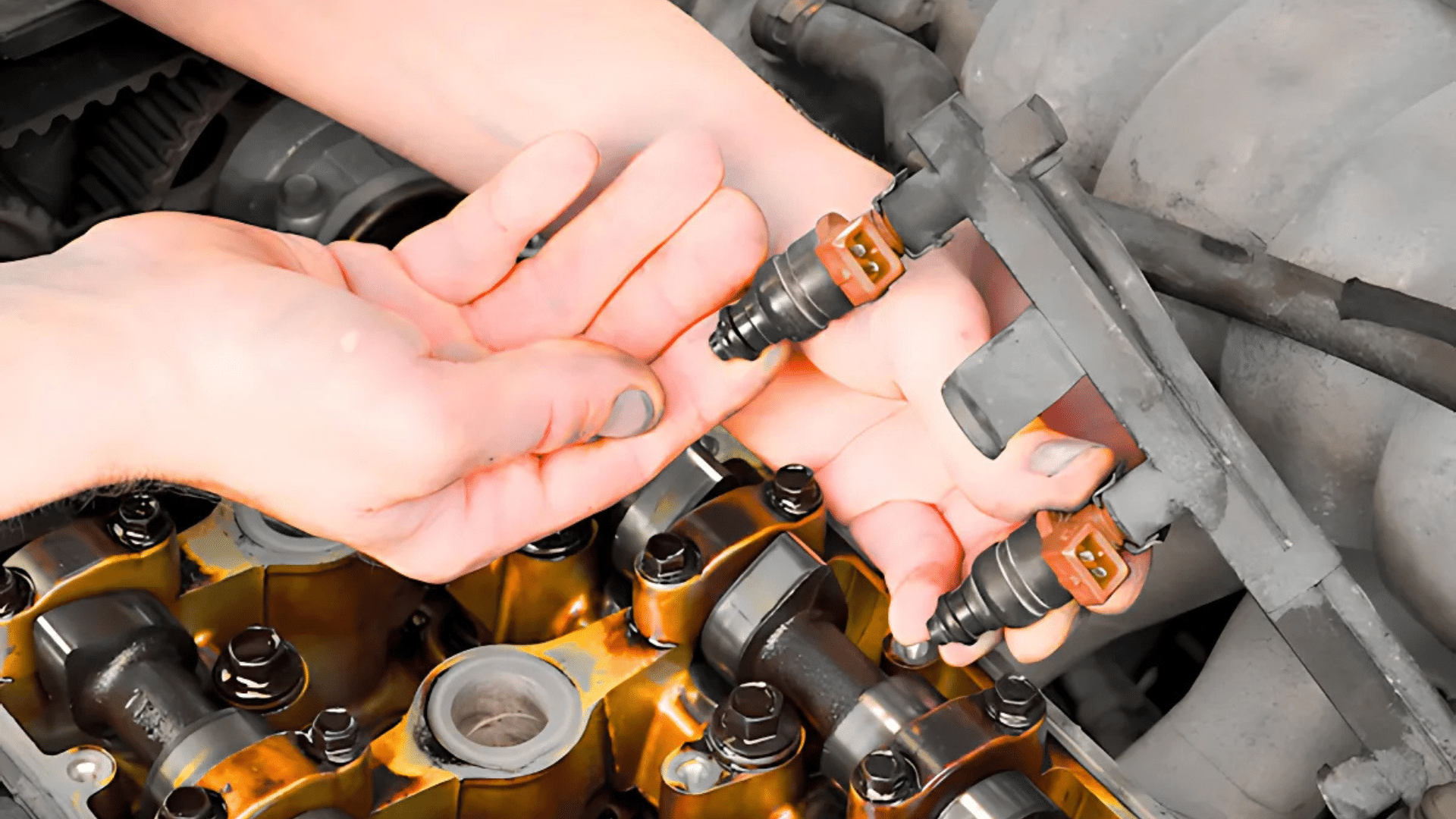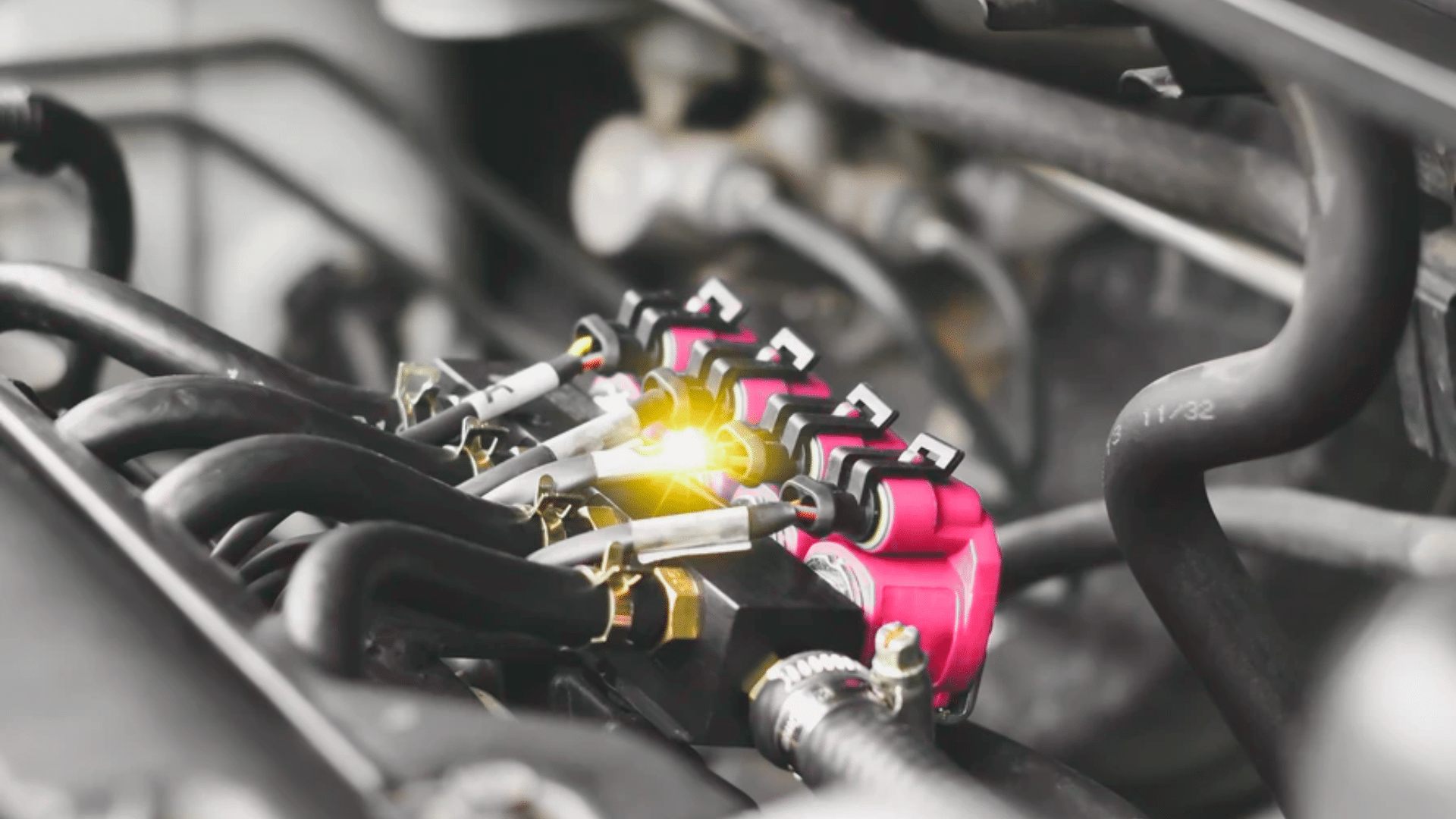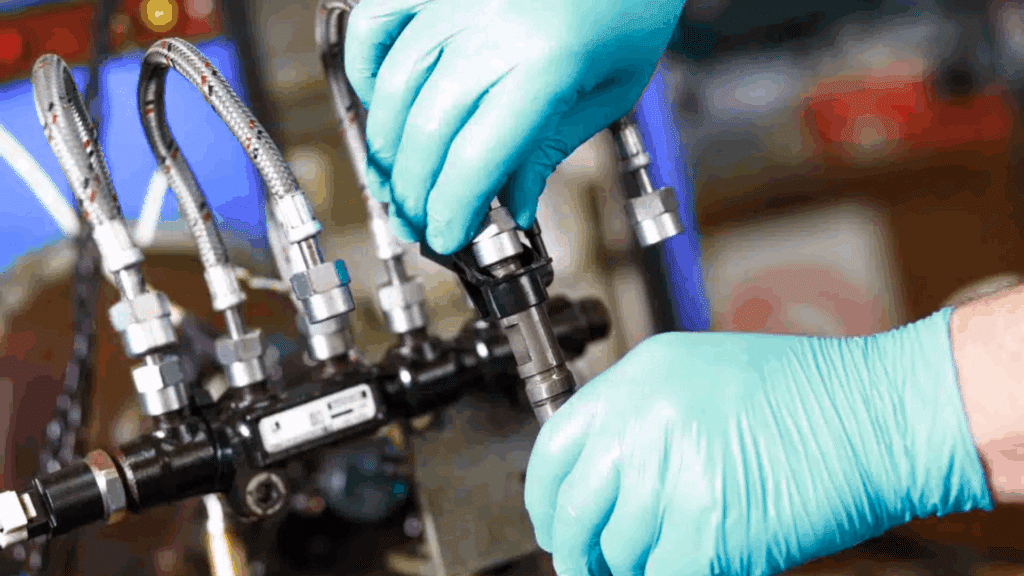Cars require regular maintenance to run smoothly over time. Most drivers remember basics like oil changes, brake checks, or tire service.
However, there are other services that matter just as much, even if they are not always considered.
One of these is fuel system cleaning. Many people do not pay attention to it until later, yet it plays a crucial role in maintaining a vehicle’s good condition.
Skipping it may not cause problems right away, but it can in the long run.
This blog explains fuel system cleaning in simple terms, along with its purpose and benefits.
What is a Fuel System?
The fuel system in a car is a group of parts that work together to move fuel from the gas tank to the engine.
The engine cannot run without fuel, making this system crucial. It includes the fuel tank, fuel pump, fuel lines, fuel filter, and fuel injectors. Each part plays a role in ensuring that fuel reaches the engine in the correct amount.
The fuel pump sends fuel from the tank to the engine. Fuel lines carry it along the way. The fuel filter prevents dirt and debris from entering.
Finally, the fuel injectors spray fuel into the engine at just the right time. When all these parts work well, the engine runs smoothly and uses fuel efficiently.
What is Fuel System Cleaning?

Fuel system cleaning is a service that removes dirt, deposits, and buildup from the fuel system.
Over time, small amounts of carbon, varnish, and other debris collect inside. These materials can clog the injectors, slow down the fuel pump, or block the filter.
A cleaning service helps remove these problems.
During this process, a mechanic may use special cleaning tools, liquids, or machines. The goal is to restore the normal flow of fuel.
Some services focus on the injectors. Others clean the entire system from the tank to the engine.
Signs the Fuel System May Need Cleaning
A driver may not think about the fuel system until something feels wrong. Some signs that a car may need a fuel system cleaning include:
- The engine feels rough when idling.
- The car takes longer to start.
- Fuel mileage goes down.
- The engine does not feel as strong when speeding up.
- There is hesitation when pressing the gas pedal.
- The “check engine” light comes on.
These issues do not always mean the fuel system is dirty, but they are common warning signs. A mechanic can check the system and suggest if cleaning is needed.
Benefits of Fuel System Cleaning

Fuel system cleaning has many benefits. Some are noticed right away, while others help the car over time.
1. Better Engine Performance
A clean fuel system allows fuel to flow the way it should. When dirt or deposits block the injectors, the engine may not get the right mix of air and fuel.
This leads to rough idling, slow starts, or weak power. Cleaning removes those deposits so the injectors spray fuel in a fine mist again.
The engine runs smoother, responds faster when pressing the gas, and feels stronger on the road.
2. Improved Fuel Mileage
When fuel cannot flow well, the engine has to work harder.
That extra effort burns more fuel. After cleaning, the engine uses fuel more efficiently. This often means better miles per gallon (MPG).
Over time, better mileage saves money at the gas pump, especially for people who drive often.
3. Longer Engine Life
Dirt and carbon buildup put stress on engine parts.
Clogged injectors, blocked filters, and weak fuel pumps all force the engine to work harder than it should.
Cleaning reduces this stress, which helps protect the parts inside. A cleaner system means less wear and tear, and that can add years to the engine’s life.
4. Lower Emissions
Engines with dirty fuel systems burn fuel in an uneven way. This often creates more harmful gases, like carbon monoxide or hydrocarbons.
A clean system helps the engine burn fuel more completely. As a result, the car gives off fewer emissions.
This is good for the environment and can also help the vehicle pass emission tests required in some areas.
5. Prevents Costly Repairs
If dirt and buildup are ignored, they can cause serious damage. A clogged injector may fail. A dirty filter can hurt the fuel pump.
Replacing these parts can cost hundreds of dollars. A fuel system cleaning is much cheaper compared to these repairs.
By cleaning the system regularly, drivers reduce the risk of big, expensive problems.
What Happens During a Fuel System Service?
Fuel system service is performed in various ways, depending on the car and the shop. Below are the most common steps:
- Inspection: The mechanic checks the fuel system for signs of dirt, leaks, or damage.
- Fuel Injector Cleaning: Specialized tools and cleaning fluids are used to remove deposits from fuel injectors.
- Fuel Line and Pump Check: The lines and pumps are cleaned or tested to ensure that fuel flows correctly.
- Fuel Filter Change: If the filter is dirty, it may be replaced.
- System Flush: In some cases, a machine pushes a strong cleaner through the whole system.
After the service, the mechanic may test-drive the car to make sure it runs better.
Fuel Injection Cleaning Service
Fuel injectors are one of the most commonly clogged parts.
They spray fuel into the engine in a fine mist. If the nozzle gets clogged, the spray pattern changes. This makes the engine run poorly.
A fuel injection cleaning service targets these small nozzles. It helps remove carbon and dirt so the injectors can spray fuel properly again.
When injectors are clean, the engine uses fuel in the right way, giving better performance and efficiency.
How Often Should a Fuel System Be Cleaned?
There is no single answer to this question. It depends on the car, driving habits, and type of fuel used.
Some experts suggest cleaning every 30,000 miles. Others say once every 45,000 to 60,000 miles.
If a car shows signs of trouble, it may need service sooner. Regular checkups with a mechanic can help decide the best time.
Some drivers may also use fuel additives that help keep the system cleaner between professional services.
Cost of Fuel System Cleaning
The cost of fuel system cleaning depends on the type of service and the condition of the car. Basic cleaning is often affordable, while advanced services or part replacements can raise the price. Compared to major repairs, the cost of cleaning is much lower and can save money over time.
| Service Type | Average Cost | Notes |
|---|---|---|
| Basic Fuel Injector Cleaning | $70 – $100 | Targets injectors only; quick service. |
| Standard Fuel System Cleaning | $100 – $200 | Includes injectors, lines, and filter check. |
| Full Fuel System Flush | $150 – $250+ | Deep cleaning of the entire system with special tools. |
| Fuel Injector Replacement | $300 – $500+ each | Needed if injectors are badly clogged or damaged. |
| Fuel Pump Replacement | $600 – $1,000+ | Major repair if the pump fails due to buildup. |
Tips to Keep the Fuel System Clean Longer
Fuel system cleaning is helpful, but good habits can reduce how often it is needed. These are a few tips:
- Use high-quality fuel from trusted stations.
- Replace the fuel filter on schedule.
- Avoid driving often with a nearly empty tank.
- Get regular oil changes, as oil quality can affect combustion.
- Take longer drives now and then, since short trips often cause more deposits.
These steps will not stop the buildup completely, but they can slow it down.
Conclusion
A clean fuel system makes a big difference in how a car runs. It helps the engine use fuel in the best way, improves mileage, and lowers harmful emissions.
It also reduces stress on important parts like injectors and pumps. This means fewer problems, fewer repairs, and more years of smooth driving.
The cost of cleaning is small compared to the price of replacing major parts. Regular service also gives peace of mind, knowing the car is cared for and ready for daily use.
Drivers who keep up with fuel system cleaning often notice smoother rides and stronger performance.
Taking care of the fuel system is a smart step in car care. Schedule a fuel system cleaning today and keep your car in top shape.





